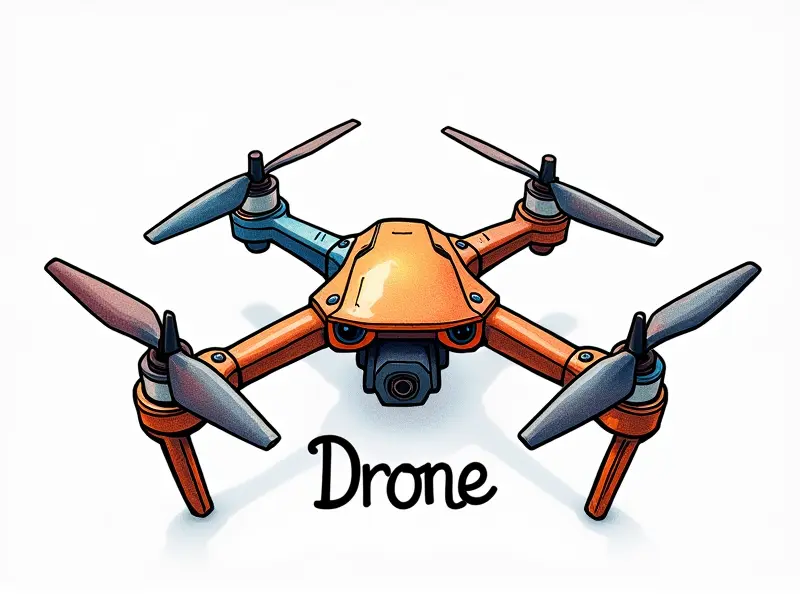Can drones be used in war?

Drones: Game Changers in Modern Warfare?
The advent of drones has revolutionized the way wars are fought, offering unprecedented advantages and challenges to military strategists. As unmanned aerial vehicles (UAVs) become increasingly sophisticated, their role in modern warfare is expanding beyond traditional reconnaissance missions to include combat operations, intelligence gathering, and even targeted strikes.
How Drones Are Revolutionizing Military Tactics
Drones are transforming the battlefield by providing real-time surveillance capabilities that were once unimaginable. With high-resolution cameras and advanced sensors, drones can monitor enemy movements, detect troop concentrations, and identify strategic targets with unparalleled precision. This data enables military commanders to make informed decisions swiftly, enhancing overall operational efficiency.
The Role of Drones in Future Wars
Looking ahead, the integration of artificial intelligence (AI) into drone technology promises even greater advancements. Autonomous drones capable of independent decision-making could become a staple on future battlefields, reducing human risk and increasing tactical flexibility. As nations continue to invest heavily in drone R&D, these unmanned systems will likely play an ever more critical role in shaping military strategies.
Drone Warfare: Advantages and Challenges
The use of drones offers several key advantages over traditional combat aircraft:
- Cost-effectiveness: Drones are significantly cheaper to produce and maintain compared to manned fighter jets, making them an attractive option for budget-conscious military forces.
- Risk reduction: By eliminating the need for pilots, drones minimize human casualties in high-risk missions.
- Persistent surveillance: Drones can remain airborne for extended periods, providing continuous coverage of vast areas without fatigue or risk to personnel.
However, there are also significant challenges associated with drone warfare:
- Ethical concerns: The use of unmanned systems raises questions about accountability and the morality of remote-controlled combat operations.
- Technological vulnerabilities: As drones become more sophisticated, so too do methods to counter them. Cyberattacks and jamming technologies pose serious threats to drone operations.
Impact of Drones on Modern Battlefield Strategies
The deployment of drones has fundamentally altered the dynamics of modern warfare. Commanders now rely heavily on real-time intelligence provided by UAVs to plan and execute missions with greater accuracy and speed. This shift towards data-driven decision-making enhances situational awareness, allowing for more effective resource allocation and mission planning.
Stealth Capabilities of Military Drones Explained
Military drones are equipped with stealth technology that allows them to evade detection by radar systems. Features such as low observability profiles, advanced materials, and sophisticated electronic warfare capabilities enable these unmanned vehicles to penetrate enemy defenses undetected. This stealth capacity is particularly valuable in covert operations where surprise and secrecy are paramount.
Can Drones Replace Traditional Combat Aircraft?
While drones offer numerous benefits, it remains unlikely that they will completely replace manned aircraft anytime soon. The complexity of aerial combat requires a level of situational awareness and adaptability that current drone technology struggles to match. However, as AI continues to advance, the gap between human pilots and autonomous systems may narrow, potentially leading to hybrid models where drones complement rather than compete with traditional fighter jets.
Drones in War: Ethical and Strategic Implications
The ethical implications of drone warfare are complex and multifaceted. On one hand, drones reduce the risk to human life by eliminating the need for pilots in dangerous missions. On the other hand, their use raises concerns about accountability, transparency, and the potential for collateral damage. Strategically, while drones offer significant advantages in terms of surveillance and precision strikes, they also introduce new vulnerabilities related to cybersecurity and electronic warfare.
The Evolution of Drones in Armed Conflicts
Since their initial deployment in the early 2000s, military drones have undergone rapid evolution. Early models were primarily used for reconnaissance purposes but have since expanded into combat roles. Advances in sensor technology, AI, and stealth capabilities continue to drive innovation within this field, ensuring that drones will remain a vital component of future warfare.
How Drones Revolutionize Modern Warfare
Drones are revolutionizing modern warfare by providing unparalleled surveillance capabilities, reducing human risk, and enhancing operational efficiency. Their ability to gather real-time intelligence and execute precision strikes makes them invaluable assets on today's battlefields. As technology continues to advance, the role of drones in military operations is only set to grow.
Drone Strikes: Changing the Face of War
The use of drone strikes has fundamentally altered the nature of warfare, enabling targeted attacks with minimal collateral damage and reduced risk to friendly forces. However, this approach also raises important ethical questions about accountability and transparency in military operations. As nations continue to refine their use of drones, these issues will remain at the forefront of international debate.
Conclusion
The integration of drones into modern warfare represents a significant shift in military strategy and tactics. While offering numerous advantages such as cost-effectiveness, enhanced surveillance capabilities, and reduced risk to human life, their use also presents ethical challenges and technological vulnerabilities that must be addressed. As drone technology continues to evolve, it is clear that these unmanned systems will play an increasingly prominent role on future battlefields.

